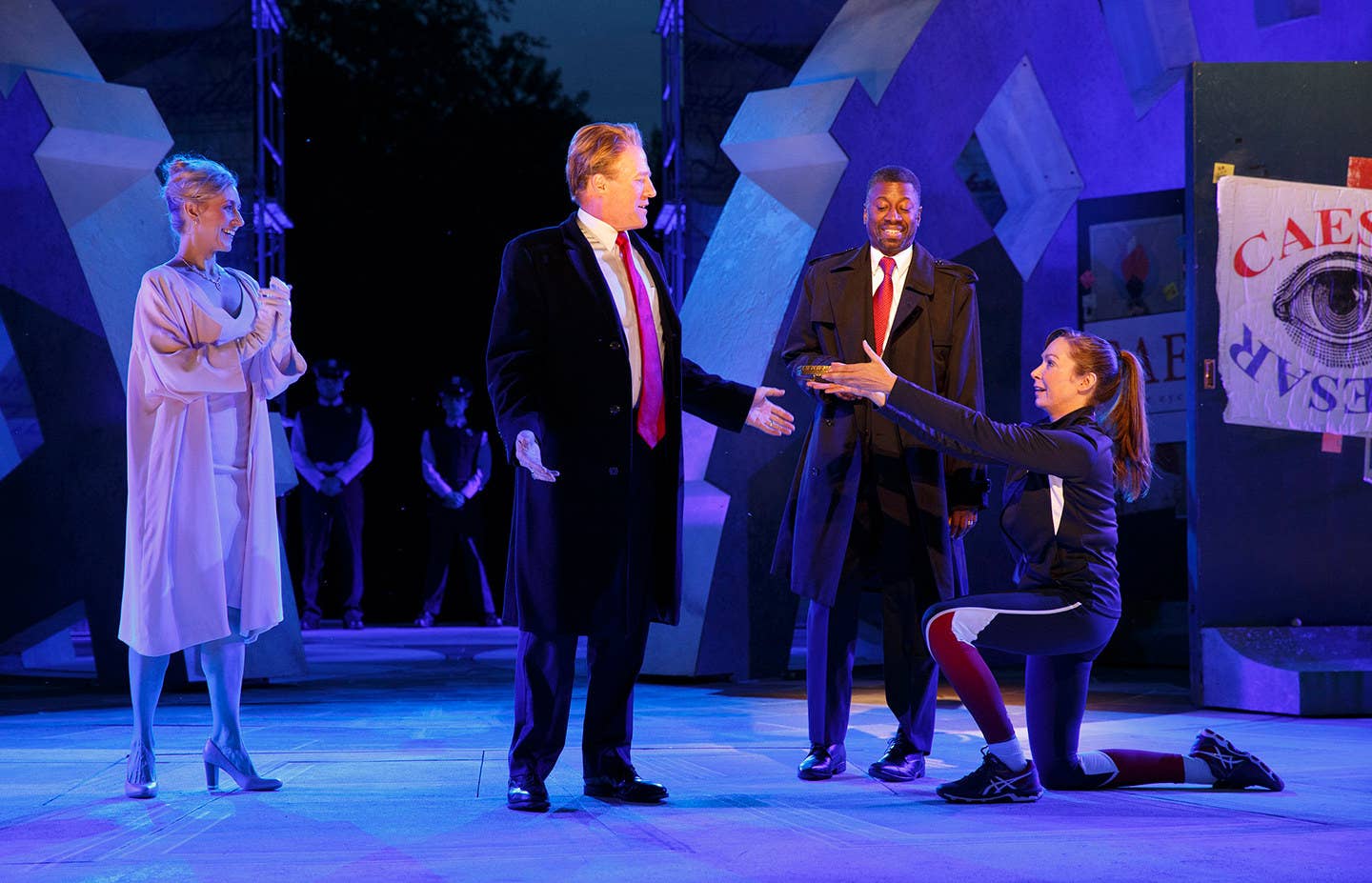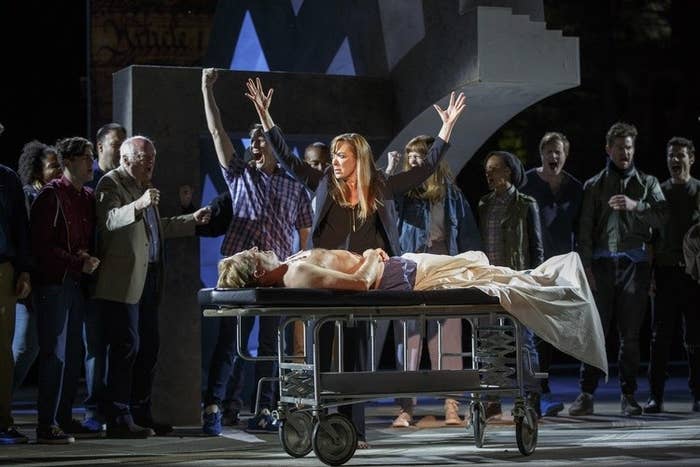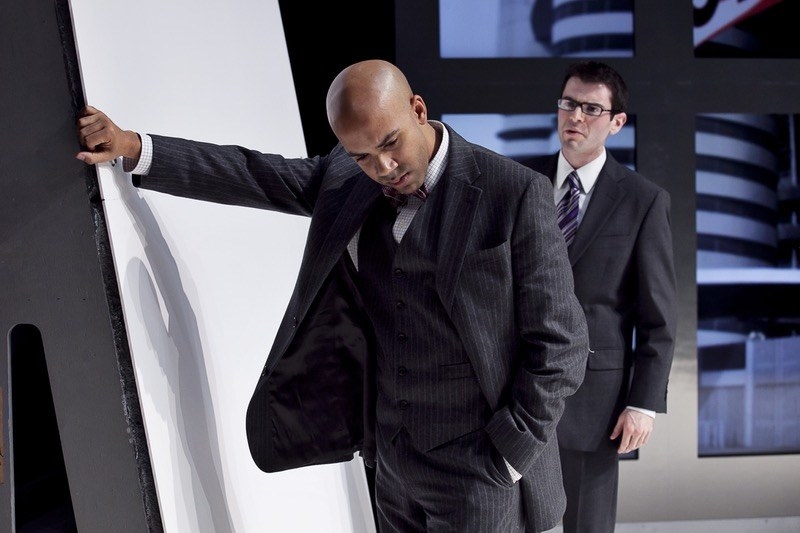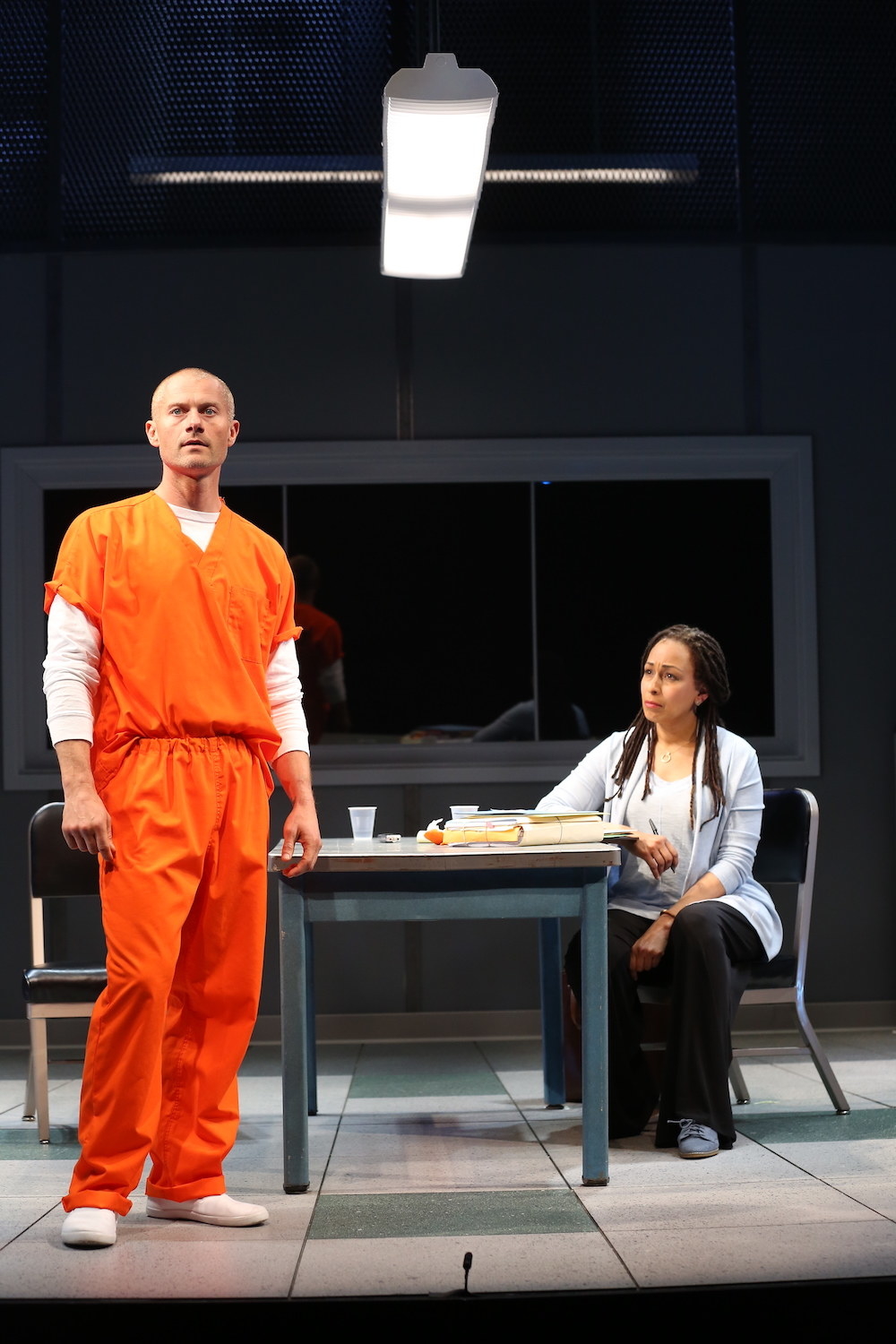
At the Monday-night opening of the Public Theater’s Shakespeare in the Park production of Julius Caesar, artistic director Oskar Eustis addressed the audience in a speech that was as much about the production itself as it was about the controversy that has followed it over the past few days. “We try to hold a mirror up to nature,” he said. “It’s what Shakespeare was doing, it’s what we’re doing. When we hold a mirror up to nature, often what we reveal are disturbing, upsetting, provoking things. Thank god. That’s our job.”
This Julius Caesar — in which Gregg Henry plays a version of the title character that is heavily influenced by President Donald Trump — may have been designed to hold up a mirror to the Trump administration, as well as the resistance that has formed against him. In doing so, however, it has held up a mirror to the culture at large: the fast-changing nature of protest art, the heightened rhetoric on the left and the right, and the widely felt fear that freedom of expression is being eroded. The outrage over the Public’s Julius Caesar will pass, but the reaction it has inspired is a telling reflection of how political art functions in Trump’s America, and what we can expect going forward.
The backlash to the production began last week when a bootleg video of the assassination scene began circulating online. It was quickly picked up by right-leaning outlets, using flame-stoking headlines like Fox News’ “NYC Play Appears to Depict Assassination of Trump” and Breitbart’s “‘Trump’ Stabbed to Death During Shakespeare in the Park Performance of Julius Caesar.” (The context that the play in question is a 400-year-old classic was somewhat lost in the fury, along with the reality that Julius Caesar does not actually advocate assassination and, in fact, depicts the chaos that erupts when democracy is undone by violence.) Delta and Bank of America withdrew their support of the production, and the National Endowment for the Arts distanced themselves from it, noting that no federal funds had gone toward this Julius Caesar.

Outside the Delacorte Theater in Central Park Monday night, the only sign of trouble was a slightly heightened security presence. While the backlash toward Julius Caesar might have suggested an all-out culture war, the vitriol seems confined to the internet: There was not a single protester in sight.
It’s impossible to determine how many angry emails, phone calls, and tweets about Julius Caesar that Delta and Bank of America received before they felt compelled to withdraw their support. It’s also unclear how much of that anger came from people who had actually seen the production — the majority of the most hostile responses online have come as a result of the brief video clip, devoid of any nuance that might have been offered by seeing the show in its entirety. Outrage moves quickly, however, and the fear of being tied to something controversial was enough for these sponsors to take immediate action. A barrage of furious tweets can feel like a mob, even if that mob is only online — and that is terrifying for corporations who worry what the country’s stark political divide might mean for their bottom line.
The daily stream of outrage is a constant reminder that everyone is on edge in 2017: In this case, that goes for the critics of this production who feel that it is an unequivocal provocation of violence against the president, and the artists who now view the controversy as a free speech battle. Julius Caesar also comes hot on the heels of Kathy Griffin’s notorious photo shoot with Trump’s bloody severed head; that, too, inspired a media firestorm, although few came to her defense. Although debates over how to criticize a sitting president are nothing new, rarely have they felt louder and more all-consuming.

This certainly isn’t the first production of Julius Caesar set in modern times, as defenders of the Public’s interpretation have noted. In 2012, Minnesota’s Guthrie Theatre produced Julius Caesar with a Caesar who appeared to resemble then-president Barack Obama. Reviews noted the association but largely praised the production. And Delta, a financial backer of the theater, did not withdraw their support. If there was any outrage at the time, it was minimal and has been lost to the internet ether.
On the surface, this seems like hypocrisy, and while there’s a case to be made for a double standard at play, it’s important to look at how outrage culture has accelerated over the five years since the Guthrie Theatre production. And since Trump’s election, that ire has only increased; any semblance of “civilized” debate about politics, which was already tenuous, feels like a charming relic of the past.
But it’s not only the response to art that is heightened — it’s the art itself. When Trump himself says, “I could stand in the middle of Fifth Avenue and shoot somebody and not lose voters,” the bar is raised on political satire and the role of violence within it. The Public’s Julius Caesar goes so far as to add these same words to Shakespeare’s text: In this production, Casca says, “But there’s no heed to be taken of them / If Caesar had stabbed their mothers on Fifth Avenue, they would have done no less.” Even Caesar’s wife, Calpurnia, has been given a Slavic accent that can best be described as Melania-esque. Julius Caesar here isn’t just meant to evoke Trump; he is Trump, and it’s disingenuous to suggest otherwise. That doesn’t mean the play is a call to arms against him, but that the production is expressly about Trump is an important distinction in a discussion that has many defenders dismissing the detractors as illiterates who don’t understand Shakespeare.

Theater has been responding to Trump’s America with impressive speed from the moment of his election, with varying results. The speculative Building the Wall, which depicts a dark future of immigrant detention centers and mass murder, opened May 24 off-Broadway — only to close early on June 4 after disappointing ticket sales. Another view of a dystopian future, 1984, is now running at Broadway’s Hudson Theatre; while there are no overt references to Trump, its themes of censorship and repression are a clear inference of much of the country’s most pressing concerns. And then, there’s the not-so-subtle Me the People: The Trump America Musical, which opens at the Triad June 29.
When it comes to political theater, artists will ultimately decide what the most effective form of resistance looks like; audiences will decide what they are comfortable sitting through. But the provocation and pearl-clutching will only increase — and in one of the most contentious and occasionally surreal moments in American history, perhaps that’s the way it must be.
Art is reactive, and it doesn’t always get it right. Without the benefit of hindsight, it’s difficult to know which current or upcoming production is going to effect change the way that classics like The Crucible and The Normal Heart did. As artists continue to reckon with President Trump, they will try and sometimes fail — but it’s the successes that will stand the test of time, long after the missteps and the dull roar of outrage have faded from memory.
